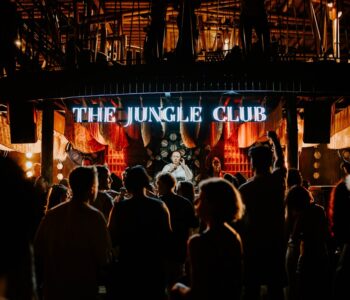Notable human rights warriors in history proved that going on a hunger strike is one way to stand up for a cause and make a difference. Similarly, when Solemen Indonesia started in 2011, founder Robert Epstone committed to stay barefoot in solidarity with those living in such substandard conditions where footwear is considered a luxury.
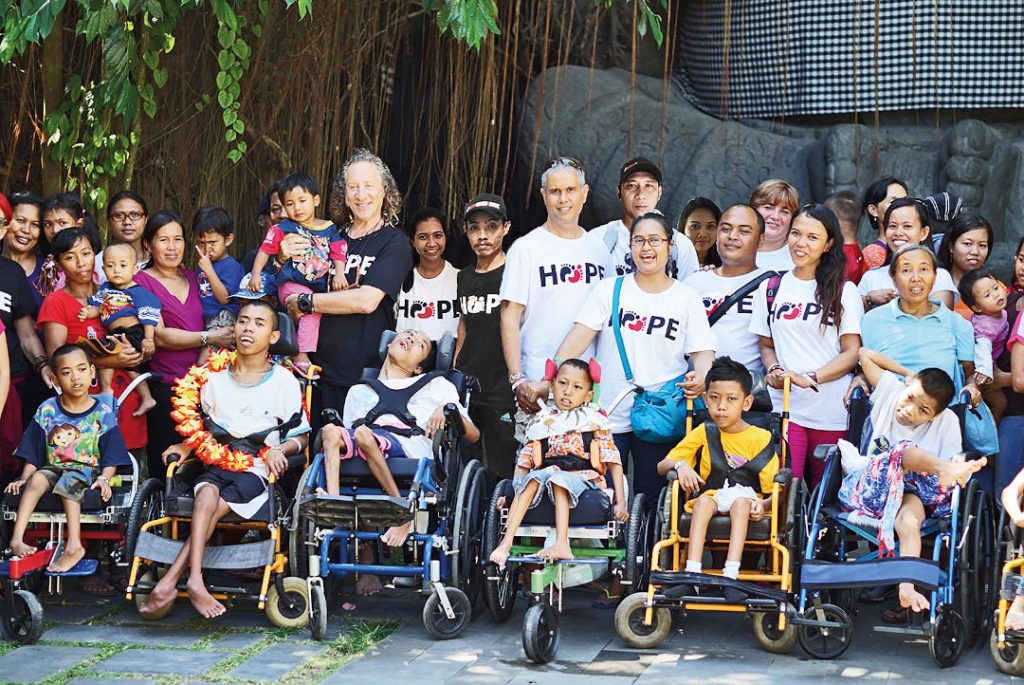
It wasn’t until 2012 that Solemen started their outreach programs. It began when long-time nurse Sarah Chapman came across a young girl, Kadek Ani, who was suffering from several health issues as well as severe malnourishment. Wanting to help, Sarah came across Robert who had already founded Solemen by this point. Today, Sarah and Robert continue their extensive outreach programmes to benefit the poor, disabled, homeless, and marginalised in Bali and beyond. Whilst Kadek Ani sadly passed away, she sparked something in Sarah and Robert that has made them help countless others. Her legacy remains.
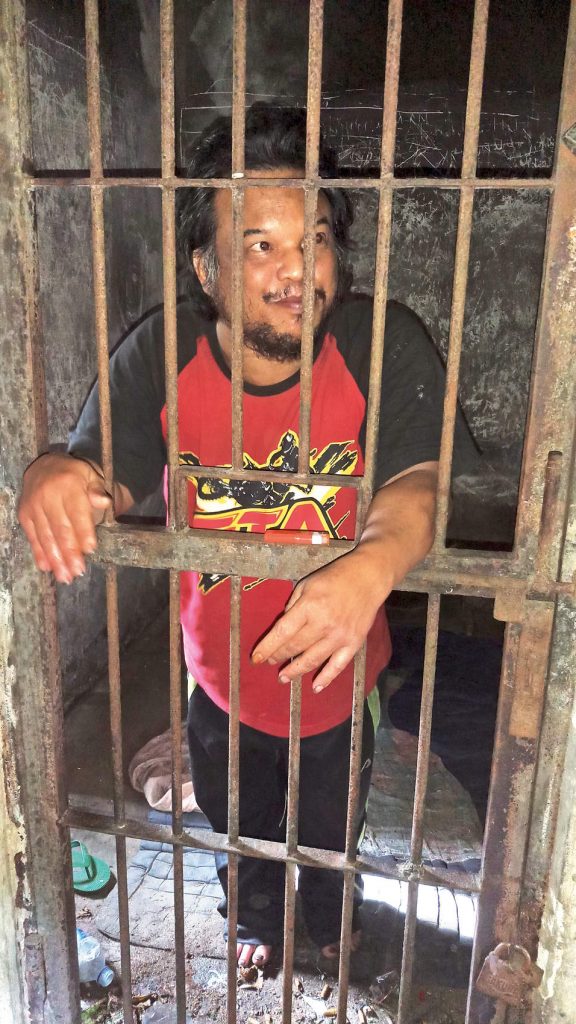
Before 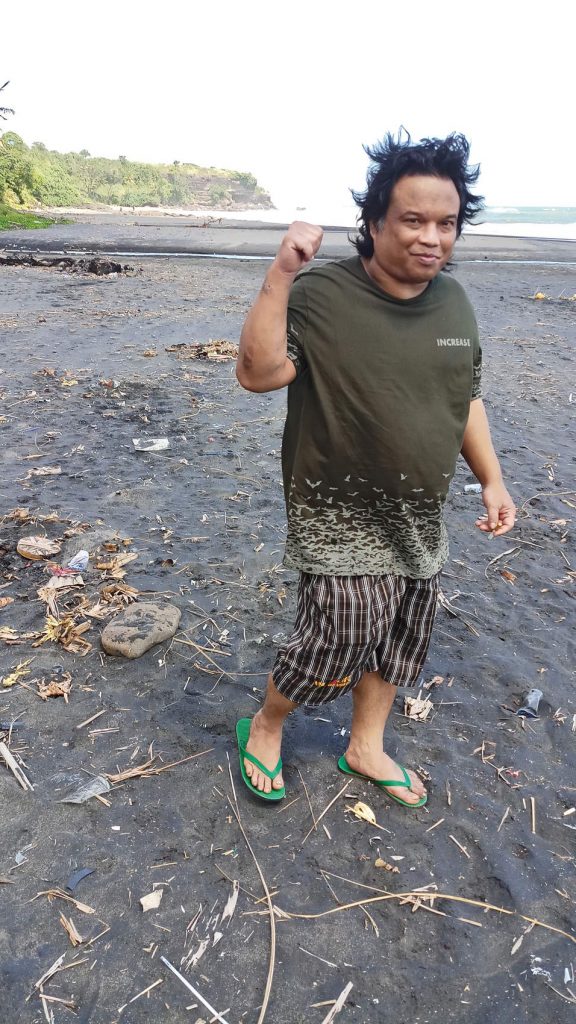
After
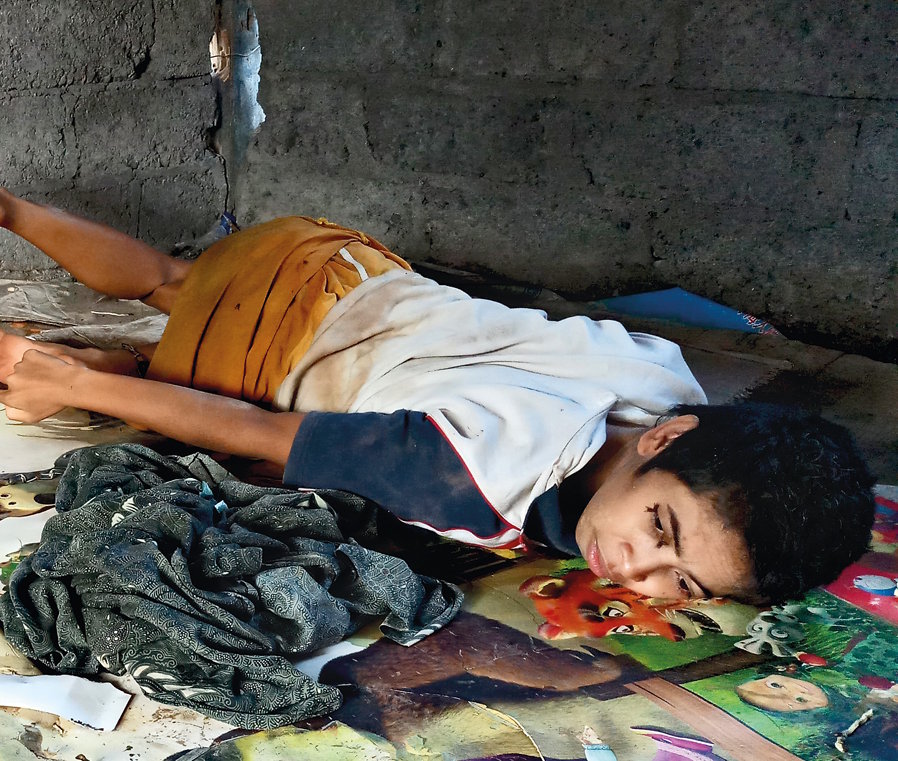
Before 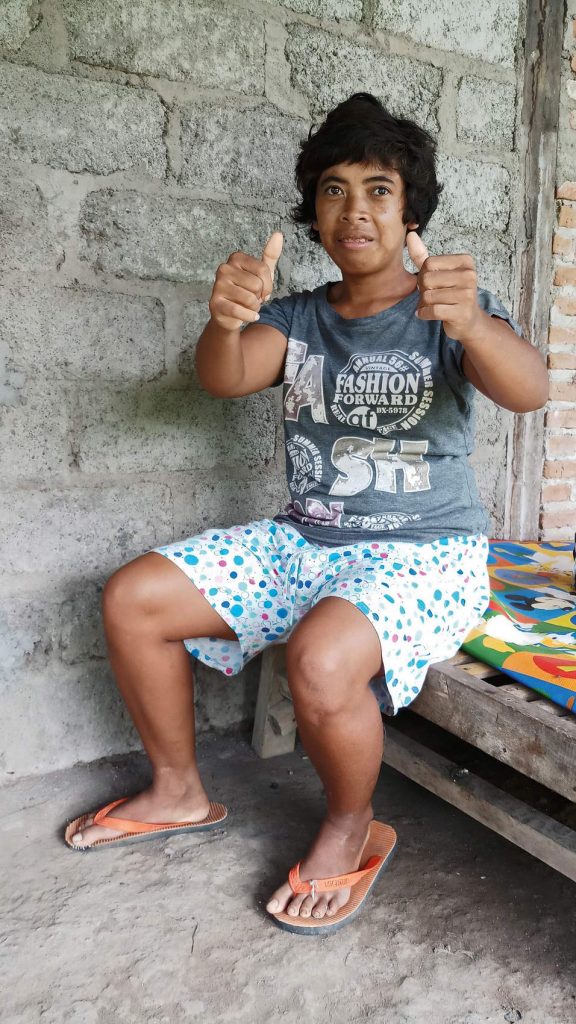
After
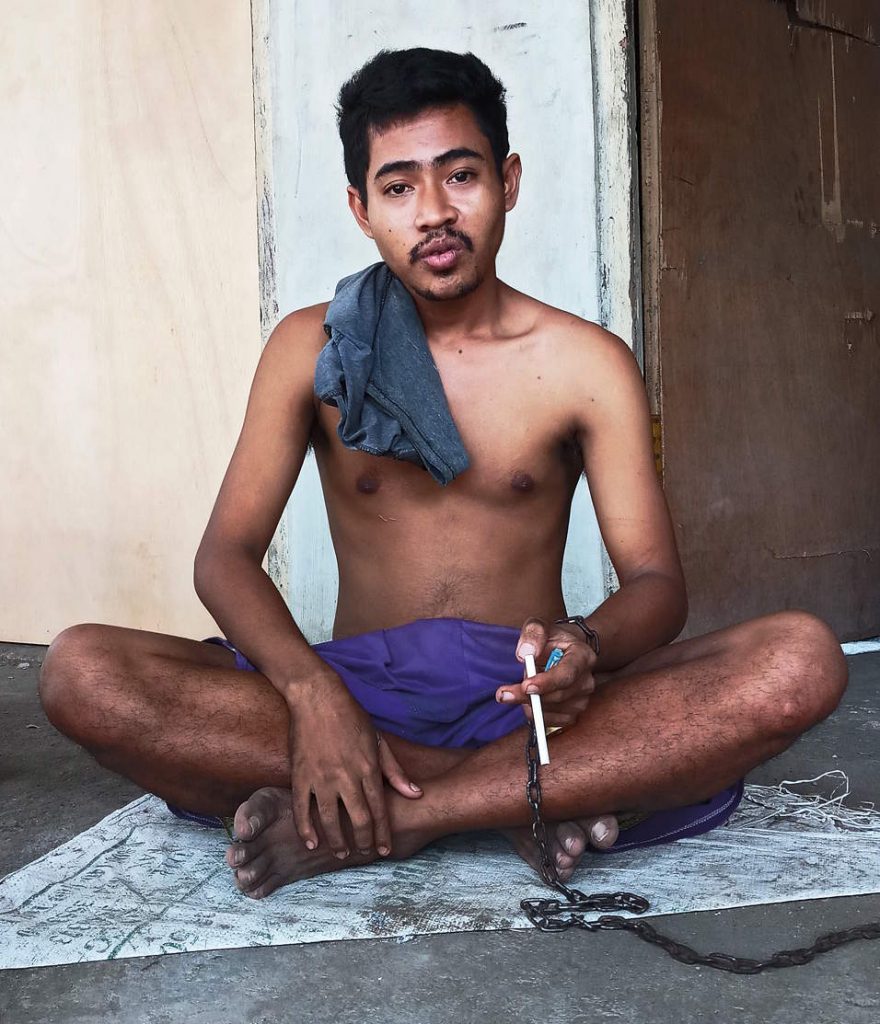
Before 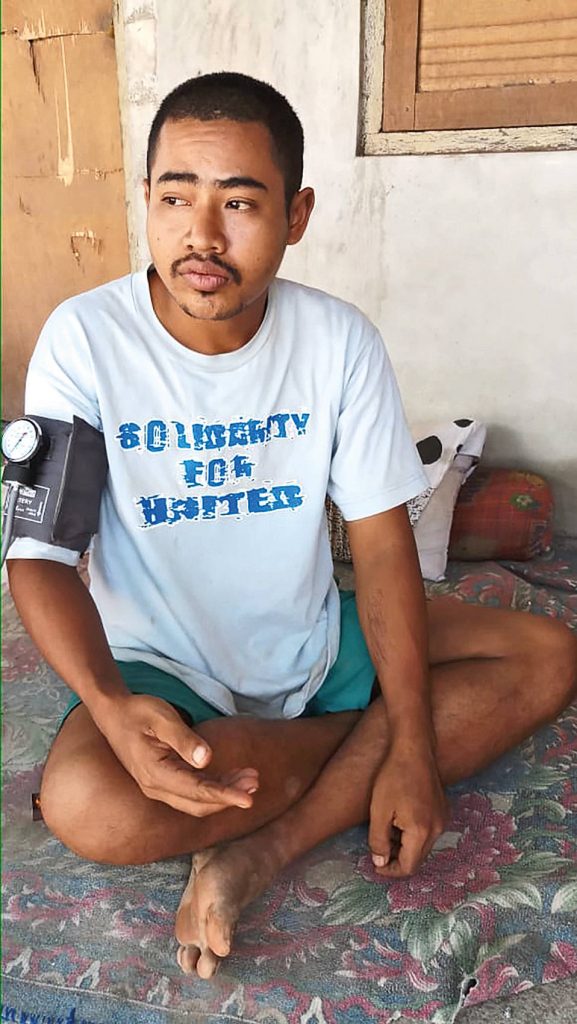
After
Over the years, the team has helped alleviate destitution by bringing sustainable solutions to those that remain hidden from the public eye, thus lacking access to basic services, from education to healthcare.
Behind Solemen’s Outreach Programmes are a team of dedicated staff and volunteers – roles range from doctors, psychiatrists, nurses – who tend to the needs of the physically and mentally impaired. Those under the care of Solemen are given the affectionate title of ‘Solebuddies’.
86% of Solebuddies fall in the youth category, whilst the rest are adults. The ailments which they suffer from include everything from heart disease, pneumonia, cancer, Downs Syndrome and Cerebral Palsy to rare conditions from birth such as Harlequins Ichthyosis or Epidermolysis Bullosa (EB). On top of the outreach, Solemen also provide a ‘halfway-house’ for patients that are being assessed at hospital, are recovering or are being monitored post-treatment in the Bali Dynasty Care and Recovery Centre at Solemen HQ in Kuta.
Solemen have added patients of psychosocial disabilities to their already long list of programs. Mental health patients are hard to identify on the island, as the culture dictates that disability, misery, and other ‘negative representations’ should be hidden way.
Particularly upsetting is the practice of pasung. Coming from the Indonesian word for ‘stocks’ (i.e. the wooden instrument used in medieval times to lock up criminals), victims of the practice are notoriously locked away in confined spaces, a far-cry from anything one would call a bedroom. Whilst the practice has been made illegal by the Indonesian government, it continues to be exercised amongst communities where education is poor or access to health services is difficult to access – financially or geographically.
Someone suffering from schizophrenia, for example, would be found tied up in a cramped, often filthy shed or room, with chains on their ankles to limit their movements. Or they are locked behind steel bars similar to a jail cell. It is often families themselves that will lock up their own member if suffering from mental health issues. This is in fact a form of protection; be it protecting the family, the patient themselves, or to avoid incidents or misunderstanding with the immediate community.
It is with extreme cases such as these where Solemen know they are needed the most. Upon engaging the victims of pasung, Solemen approach the situation holistically. They communicate with families, allowing for the release of these patients. This is step one. Following this, Solemen will continuously monitor the patients, providing long-term medication – such as a bi-weekly injection to ensure emotional stability. Over time, the patients can be reintegrated into society. Importantly, they educate families to handle patients with care, conveying the reality that they, too, need as much care and affection as any other family member. Solemen lead by example.
The team pay regular visits to make sure patients are active, fed, groomed and interacted with. Here we share some of Solemen’s success stories, where they have managed to reintegrate previous pasung victims into society:
Made, 47-years old, lived with schizophrenia. He was isolated in a cage, fully unclothed with no access to water for many years. With the help of Solemen’s monthly medication and food parcels, he now lives freely, in a family compound with his two sons and extended family, collecting rubbish as a source of income.
Ketut, 30-years old, was found chained to the floor crying for her life. She lived with schizophrenia with two other family members suffering from other mental health issues. She now works with her mother, tending family land, soon to rebuild her home.
Wayan, 23 years old, lived in shackles in his own home due to schizophrenia. Since his release and integration back to society, Budi sustains his day-to-day by selling goat satay out of a cart.
These stories are but a fraction of the great work Solemen Indonesia do on the island, but stand as a prime example of the conditions people once lived in and how Solemen have greatly improved their lives. With the help of sponsors and volunteers they can continue their positive impact everyday. With their care and kindness, disadvantaged children and adults are now nourished, receive medication but most importantly, are cared for as human beings.
Yayasan Solemen Indonesia strongly rely on donations ranging from individual to corporate sponsorships. Many of Solemen’s families are unable to afford basic food necessities, you can change this and be a part of the solution! Donate or become a monthly sponsor for them to receive food parcels, high protein milk, medical care, educational needs, and more. Solemen’s biggest corporate sponsors currently are Finns Beach Club, The Apurva Kempinski Bali, Bali Dynasty Resort, Hard Rock Hotel Bali and Frankenstein’s Laboratory.
Visit www.solemen.org/wishlist if you wish to donate essential items or www.solemen.org/drop-off-locations to view Solemen’s drop off locations from Benoa, Canggu, to Ubud.
Yayasan Solemen Indonesia
Jl. Merdeka Raya No.8x, Kuta
0812 3720 6220
solemen.org



